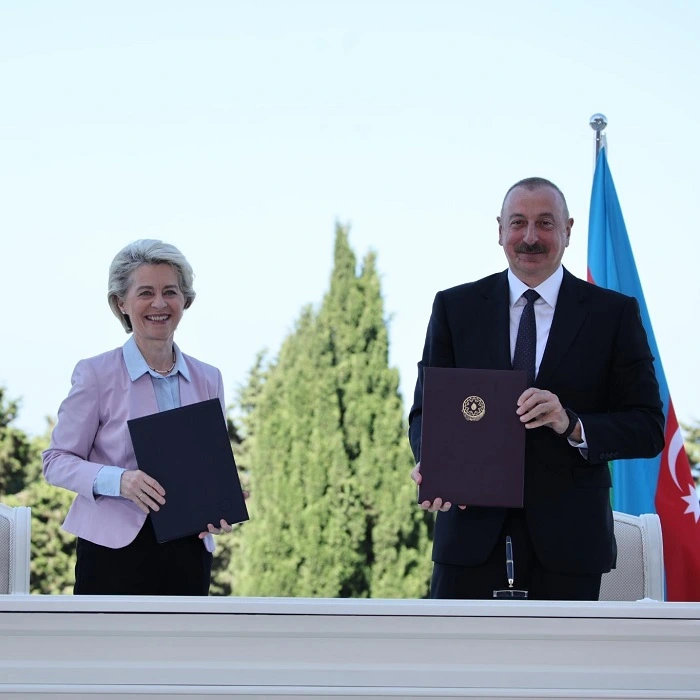Europe today is faced with multiple problems, prominent among them are the war on its eastern front that has been going on for nearly five months. The conflict along the Black Sea coast is having global consequences, which include depletion of international energy supplies.
Already, the Russian energy giant Gazprom has stopped gas supplies to some European countries including Bulgaria, Finland, Netherland and Poland.
The war is also undermining food security as fertilizer, produced by gas guzzling plants, has become more expensive, and this is being acutely felt in Austria, Germany and the Netherlands, leading to farmer protests. The energy crisis therefore feeds into a significant spike in inflation.
4 EU countries 🇩🇪🇫🇷🇦🇹🇳🇱 have announced emergency plans to enable increased coal power generation if Russian gas supplies suddenly stop.
But with the EU also pursuing a quicker transition to renewables, this does not mean coal is making a comeback.https://t.co/q6IuLGHBoo pic.twitter.com/Q7f5xASvcQ
— Ember (@EmberClimate) July 23, 2022
In anticipation of a prolonged energy crisis, some countries including Germany, the EU’s industrial engine, are considering restarting coal production, which had been phased out due to Berlin’s green obsession. A new legislation will now allow Germany to start 15 coal-powered power plants, making coal the second largest source of generating energy in the country. That all these plants were slated to be phased out by next year illustrates Berlin’s compulsions.
Energy crunch in the Netherlands has affected other sectors as well. The Netherlands has announced that it is lifting all restrictions on power stations fired by fossil fuel. The Netherlands has activated an “early warning” phase of a three-phase crisis plan to tackle the energy crisis and has lifted its embargo on coal-fired power plants.
The war in Europe and China’s ban on fertilizers have enforced a global escalation of fertilizer prices, primarily because Russia is the world’s largest fertilizer exporter. The cost of urea, potash, and diammonium phosphate, which are prominent fertilizers, have risen close to 42 percent since the war started between Russia and Ukraine. Costlier fertilizers are directly related to the global food crisis. At least since February this year, farmers in Poland have been complaining that the rising cost of fuel, cheap imports and fertilizer is making it impossible for them to sustain farming in a profitable way. Prices have risen fourfold and many farmers are caught in debt.
The timing couldn’t be worse for European unity, even as protests have kicked in several countries over the issue of emission cuts and its impact on the farm sector. In the Netherlands, for instance, 40,000 farmers came out in protest to a new government legislation that limits emissions of nitrogen oxide and ammonia – a principal by-product generated by livestock.
In Germany, farmers are against a new legislation that seeks to expand electric grids which has seen encroachment on arable lands of farmers across the country. As energy shortages grow acute, the government's efforts to expand electric grids to meet energy demands is growing, as is the call for better compensation to farmers from the government in cases where lands have been acquired by the government. The protests by Dutch farmers have led to protests in other countries in Europe including in Germany, Italy, Poland and Spain. The spiralling protests across Europe by farmers depict the treacherous link between food and energy security and their delicately poised situation in Europe.
European countries have three levels of energy crisis: early warning, alert and emergency. Austria, Croatia, Denmark, Estonia, Finland, Hungary, Italy, Latvia, the Netherlands, Slovenia and Sweden have all activated stage one while Germany has activated stage two of the crisis. Perhaps, Europe has made matters worse by self-imposing a December 05 deadline to stop all Russian cargo ships carrying oil to Europe. The European Union’s Executive commission’s proposal that Europe cut its energy consumption by 15 percent in the coming months could pose an unprecedented winter challenge.
As Europe burns due to unprecedented heat and wildfires and the largest glacier in the Italian Alps has collapsed, 40 countries have recently met in Berlin to address the climate change fight. However, for now that is a two-font battle for Europe as the Russia-Ukraine war has generated a series of interlinked impediments.
Europe has witnessed the weaponization of energy for the first time. Russia has sharply reduced gas flows through the Nord Stream 1 pipeline since mid-June this year. The 10-day maintenance break from July 11 has made the energy situation graver. Any effort by the European countries to prepare for a possible complete-halt of energy supplies from Russia – a strong possibility being factored by the European countries which are more dependent on Moscow – will have to come through hoarding or cutting consumption. Both are likely to drive the energy situation in Europe worse.
As Europe’s impediments become more clustered, some countries are likely to take their own way – as opposed to a bloc-view – in dealing with the onset of problems. Already, some countries in Europe have shown frustration for paying more price for a united stance against Russia than others. If Russia prolongs the war in Europe imposing higher costs for Europe, internal dissent and tumult over energy, food, fertilizers and climate commitments are likely to leave Europe a house divided.
(Vivek Mishra is Fellow, Strategic Studies Programme, Observer Research Foundation, New Delhi. Views expressed are personal and exclusive to India Narrative)
Also Read: Winter is coming but without Russia’s help can Germany brave the cold?




















